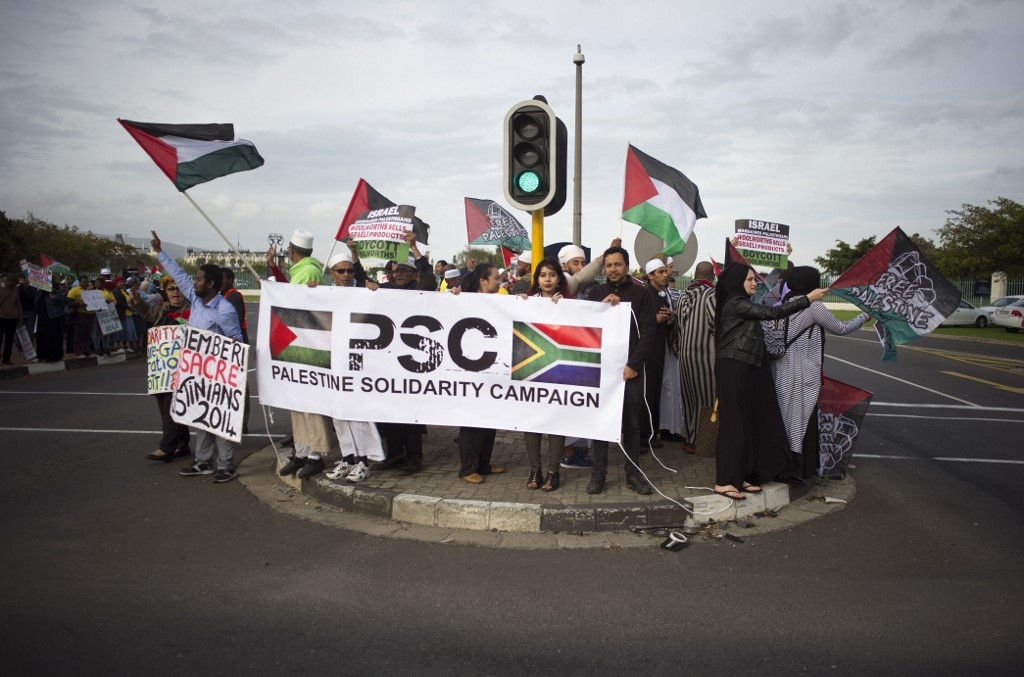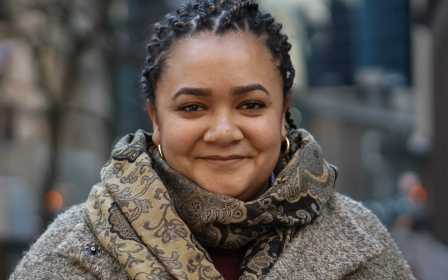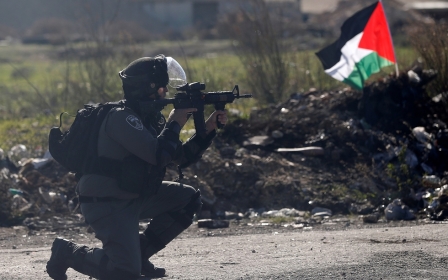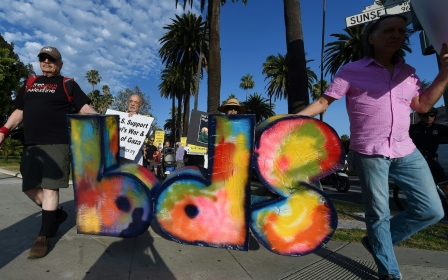Jewish scholars urge University of Cape Town to uphold Israeli boycott

South African Jewish academics have urged one of the country's leading universities not to strike out a resolution for a boycott of Israeli universities complicit in violence against Palestinians.
Around 65 academics signed a letter sent to the University of Cape Town (UCT) on Friday, calling on its leadership to stick to the resolution passed earlier in the year which they said “establishes UCT as an adherent to international law and affirms the University as a partner in the struggle for human rights in Israel/Palestine.”
“As South African Jews, we want to encourage the UCT Senate to preserve this resolution and safeguard the university’s academic freedom and autonomy," the letter, seen by Middle East Eye, reads.
On 15 March 2019, the university's Senate, which votes on academic affairs, passed a resolution that the university would not enter “into any formal relationships with Israeli academic institutions operating in the occupied Palestinian territories as well as other Israeli academic institutions enabling gross human rights violations in the occupied Palestinian territories.”
Since it was passed, the university has been under immense pressure to revoke the resolution with critics claiming the proposed sanctions are an affront to academic freedom and warning it would lead to a withdrawal of funding to South Africa's premier institution of higher education.
New MEE newsletter: Jerusalem Dispatch
Sign up to get the latest insights and analysis on Israel-Palestine, alongside Turkey Unpacked and other MEE newsletters
But the university governing council then did not adopt the resolution during a vote on 30 March. A spokesperson at the time said that a number of issues needed clarification, including "a full assessment of the sustainability impact".
The university subsequently decided to hold consultations with the university community and the wider public before it would make a decision.
The letter comes as the University Senate is scheduled to table the findings of the consultation process in its bid to reach a final decision about ratifying the boycott resolution.
However, another group of University academics submitted an open letter to the Senate on Friday voicing concern over the possibility that the resolution will be overturned on Friday itself.
"The authors of the two repeal resolutions may be unaware of the undue pressures applied to members of the academic community as well as to the council and administration in recent months. They cannot be unaware that more than 90 civilians have been killed in the same period, 20 women and children. 6 Palestinian schools have been demolished. Africans continued to be treated, in the words of the Israeli prime minister, as "infiltrators and terrorists," who must be expelled. But the repealers seem to have no interest in the facts," a letter signed by 21 UCT academics, read.
UCT's spokesperson Elijah Moholola told MEE that he would respond to queries once the Senate meeting was over.
Split the community
Boycotts on Israeli universities are not new in South Africa. The University of Johannesburg cut ties with Ben-Gurion University in 2011.
However, UCT's resolution would be unprecedented for its wide-reaching scope that would cut off relations with all Israeli universities involved in the occupation.
The move has split parts of the academic community at UCT and triggered immense debate.
The Western Cape branch of the South African Union of Jewish Students (SAUJS) said the proposed boycott of Israel “would inhibit research” at UCT.
“For this reason a boycott has no place on a university campus,” it said in a statement.
Likewise, the Rule of Law Project (RLP) said such a resolution would “violate student and academic rights to freedom of expression and academic freedom."
In the letter submitted early on Friday, academics refute this claim arguing that the universities "targeted by this resolution are not open, welcoming, progressive institutions that promote academic freedom."
"They are discriminatory and hostile spaces for Palestinians. These universities also have close ties to Israel’s military and security services, supporting the expanded militarisation of the occupied territories."
Detractors of the international Boycott Divestment and Sanctions Campaign (BDS) have also claimed the move to isolate Israeli academically is antisemitic - an accusation Palestinian activists have rejected.
“Zionist smears of anti-Semitism whenever Israel is revealed to violate international law no longer intimidate critics including, for instance, South African Jews for a Free Palestine or members of the Palestine Solidarity Campaign (PSC) many of whom happen to be Jewish,” Terry Crawford-Browne, from the Palestine Solidarity Campaign, wrote in response.
Supporters of BDS say that UCT’s decision to uphold the resolution would send a strong message to other universities complicit in alleged Israeli crimes.
“A vote to sever academic ties with Israeli universities would ensure UCT’s campus, faculty, staff and students are free of involvement with institutions that play a well-documented role in, at best justifying, at worst planning, implementing and maintaining Israel’s grave violations of international law and our fundamental human rights,” The Palestinian Federation of Unions of University Professors and Employees (PFUUPE) and the Palestinian Campaign for the Academic and Cultural Boycott of Israel (PACBI), wrote earlier this year.
Middle East Eye delivers independent and unrivalled coverage and analysis of the Middle East, North Africa and beyond. To learn more about republishing this content and the associated fees, please fill out this form. More about MEE can be found here.




